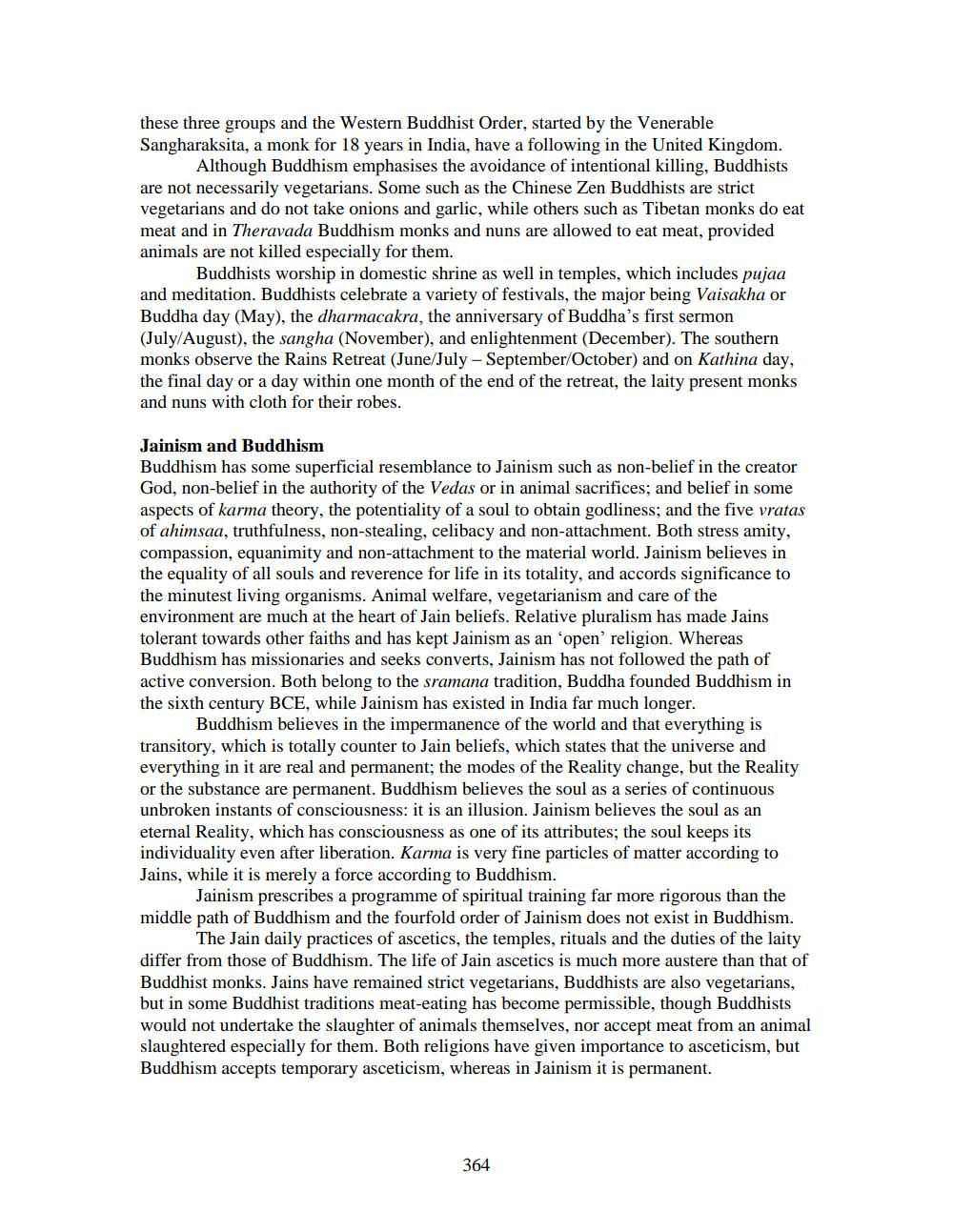________________
these three groups and the Western Buddhist Order, started by the Venerable Sangharaksita, a monk for 18 years in India, have a following in the United Kingdom.
Although Buddhism emphasises the avoidance of intentional killing, Buddhists are not necessarily vegetarians. Some such as the Chinese Zen Buddhists are strict vegetarians and do not take onions and garlic, while others such as Tibetan monks do eat meat and in Theravada Buddhism monks and nuns are allowed to eat meat, provided animals are not killed especially for them.
Buddhists worship in domestic shrine as well in temples, which includes pujaa and meditation. Buddhists celebrate a variety of festivals, the major being Vaisakha or Buddha day (May), the dharmacakra, the anniversary of Buddha's first sermon (July/August), the sangha (November), and enlightenment (December). The southern monks observe the Rains Retreat (June/July-September/October) and on Kathina day. the final day or a day within one month of the end of the retreat, the laity present monks and nuns with cloth for their robes.
Jainism and Buddhism Buddhism has some superficial resemblance to Jainism such as non-belief in the creator God, non-belief in the authority of the Vedas or in animal sacrifices; and belief in some aspects of karma theory, the potentiality of a soul to obtain godliness, and the five vratas of ahimsaa, truthfulness, non-stealing, celibacy and non-attachment. Both stress amity, compassion, equanimity and non-attachment to the material world. Jainism believes in the equality of all souls and reverence for life in its totality, and accords significance to the minutest living organisms. Animal welfare, vegetarianism and care of the environment are much at the heart of Jain beliefs. Relative pluralism has made Jains tolerant towards other faiths and has kept Jainism as an 'open' religion. Whereas Buddhism has missionaries and seeks converts, Jainism has not followed the path of active conversion. Both belong to the sramana tradition, Buddha founded Buddhism in the sixth century BCE, while Jainism has existed in India far much longer.
Buddhism believes in the impermanence of the world and that everything is transitory, which is totally counter to Jain beliefs, which states that the universe and everything in it are real and permanent; the modes of the Reality change, but the Reality or the substance are permanent. Buddhism believes the soul as a series of continuous unbroken instants of consciousness: it is an illusion. Jainism believes the soul as an eternal Reality, which has consciousness as one of its attributes; the soul keeps its individuality even after liberation. Karma is very fine particles of matter according to Jains, while it is merely a force according to Buddhism.
Jainism prescribes a programme of spiritual training far more rigorous than the middle path of Buddhism and the fourfold order of Jainism does not exist in Buddhism.
The Jain daily practices of ascetics, the temples, rituals and the duties of the laity differ from those of Buddhism. The life of Jain ascetics is much more austere than that of Buddhist monks. Jains have remained strict vegetarians, Buddhists are also vegetarians, but in some Buddhist traditions meat-eating has become permissible, though Buddhists would not undertake the slaughter of animals themselves, nor accept meat from an animal slaughtered especially for them. Both religions have given importance to asceticism, but Buddhism accepts temporary asceticism, whereas in Jainism it is permanent.
364




